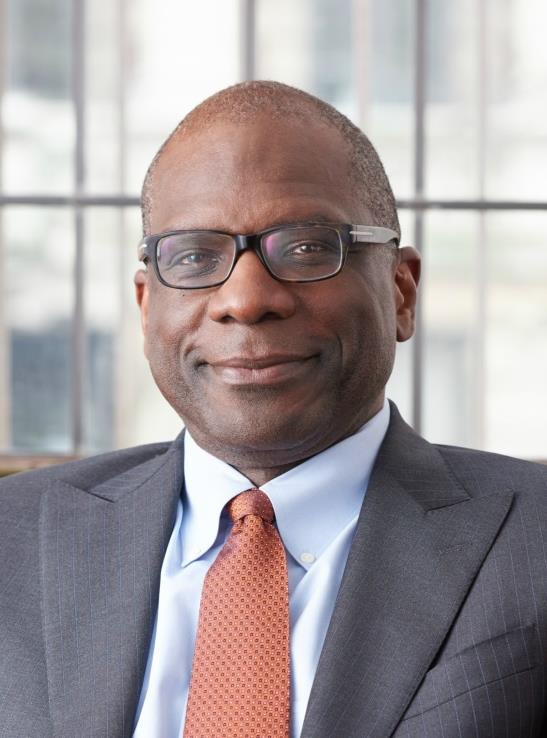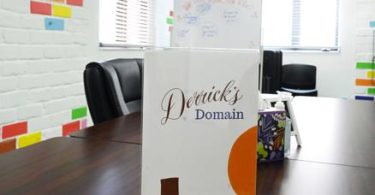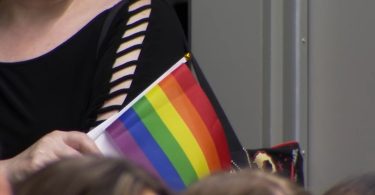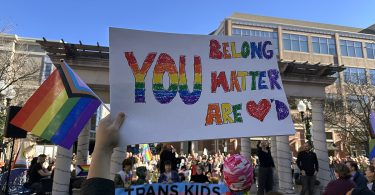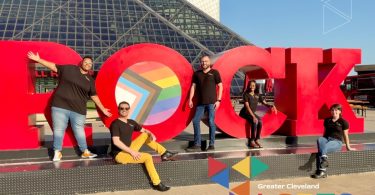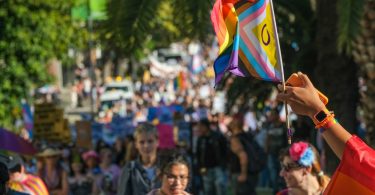Reverend Frederick Davie, Vice President of Union Theological Seminary in New York City, has never found conflict in being a gay man and being a Christian.
Throughout his career, Davie has worked for the New York City Board of Education, former NYC Mayor Dinkins, and even with President Obama on the White House Council on Faith-based and Neighborhood Partnerships.
Rev. Fred Davie
Early Life
Davie grew up in Belmont, North Carolina. He was fortunate enough to have friends and family members who were part of the LGBTI community.
‘Knowing that my family accepted these members of our community gave me an assurance that my family would embrace me when I came out, too. They did then, and they have for nearly 35 years now,’ Davie tells GSN.
Though Davie didn’t come out until way after high school, he did experience some teasing about his perceived sexual orientation. But it was sports that really shielded him from being bullied.
‘As a young man, I found some solace in sports,’ he says. ‘During middle school, I was an athlete. As a member of the football and track teams, I was somewhat insulated from bullying. Among the other students, that was my identity. As I grew into young adulthood, I took up long-distance running and have since run four marathons, including the New York City Marathon in 1996.’
After graduating from Yale in 1982, Davie moved to NYC and worked with the New York City Mission Society. He officially came out in 1986.
‘I found my liberation as an African-American man, as a gay man, and as a person who grew up with modest means in liberation theologies and other social critique,’ Davie explains.
‘Paulo Freire, Gustavo Gutierrez, Dorothee Sölle, James Cone, Cornel West, Letty Russell (a professor and mentor of mine at Yale Divinity School) and many others have helped me understand oppressions (race, color, sexuality, gender and class), their origins and their impact on my soul. I deconstructed these oppressions, and being embraced by a loving family, by loving friends, by a loving God, and with decades of spiritual direction with an Episcopal priest, I freed my soul and spirit. With this freedom, I’ve tried to live a life of authenticity and to help others do the same.’
Board of Ed
In New York, Davie also worked for the Board of Education and helped to implement a more multicultural and inclusive curriculum, such as the children’s books Heather Has Two Mommies and Daddy’s Roommate.
‘In the early 1990s, the mere inclusion of literature aimed at helping teachers become more sensitive to issues affecting LGBTQ+ persons and families elicited intense opposition from several religious groups,’ Davie says.
‘I also chaired for a time and staffed the Board of Education’s Advisory Council on HIV/AIDS education and curriculum. The curriculum ultimately was approved, after being revised considerably, again in the face of vociferous opposition from certain faith communities.’
President Obama
Davie was part of Barack Obama’s campaign and transition team in 2008.
‘I had a wonderful time during the campaign,’ Davie recalls. ‘I contributed to the development of the faith speech then-Senator Obama gave in Zanesville, Ohio in July 2008.’
‘After Obama was elected, I served on the transition team and reviewed faith programs in federal agencies. I also helped draft the details for the Executive Order that established the Office of Faith-Based and Neighborhood Partnerships. President Obama then appointed me to the White House Faith Council. My husband Michael [Adams, CEO of SAGE USA, a services and advocacy organization for LGBTQ senior citizens] and I were guests at the pre-inauguration worship service and were included in the motorcade to the Capitol for the inauguration and swearing-in activities.’
‘On the White House Council, many of us worked hard to ensure the needs of LGBTQ+ persons and family were included in all policy decisions. We also tried to remain vigilant when it came to existing regulations that discriminated against LGBTQ+ persons and family, working with LGBTQ+ organizations to address those issues.’
Even before Obama, Davie worked in the political sphere, specifically on criminal justice reform such as police-community relations and prisoner reentry issues.
‘I did all this as an out gay man and was invited by the Bush administration to give a keynote address on this work in 2007. I was happy to have Michael and his family join me for this event, where I talked about the many challenges the formerly incarcerated face when they leave prison.’
NYPD and the LGBTI Community
Despite living in New York City, which Davie describes as the ‘nation’s largest LGBTQ+ community,’ he still sees some issues with the way LGBTI people, specifically trans women of color and homeless youth, are treated.
‘While all of the challenges this community faces are of significance to me, as Acting Chair of the Civilian Complaint Review Board (CCRB), the nation’s largest police oversight agency, I’m particularly interested in how the City can strengthen the relationship between the New York Police Department and the LGBTQ+ community,’ he says.
‘The City took a big step forward in 2012 by requiring officers to address individuals by their preferred name and gender pronouns and to stop searching individuals solely in order to make gender determinations; however, a significant amount of work remains to ensure officers are adequately trained on this.’
‘In recent years, the CCRB has reached out to LGBTQ+ advocacy groups and community members to ensure they know their rights and responsibilities in any police interaction, and even more critically, that they know we will investigate their complaints in a thorough and affirming manner. The Agency has taken steps to be more inclusive, like using gender neutral honorifics in its complaint database, and including additional fields to allow for a complainant’s preferred name and gender if that differs from their ID documents.’
‘It’s also worth noting that body-worn cameras will have a meaningful impact on our investigations of anti-LGBTQ+ language directed at civilians. By the end of next year, when every patrol officer will be assigned a device, the audio from this footage will be of significant import in evaluating discourtesy or offensive language allegations—evidence that isn’t always available by other means.’
Moving Forward
As for advice Davie would give young black people struggling with their LGBTI identity, he says, ‘Surround yourself with people who love and support you. Hold on to a faith in a power of grace, love, and forgiveness. Love yourself and love your neighbor. And embrace authenticity at all costs.’
‘This year, we’re marking 50 years since the death of Rev. Martin Luther King, Jr. Next year, we’ll be marking 50 years since the raid at the Stonewall Inn. As an African-American gay minister from the South, I can’t help but consider how these historical events overlap. The common element is the fight for justice and equality for all people, a fight that continues today. That fight is what drives me—in my work both as a minister and as acting chair of the CCRB.’

